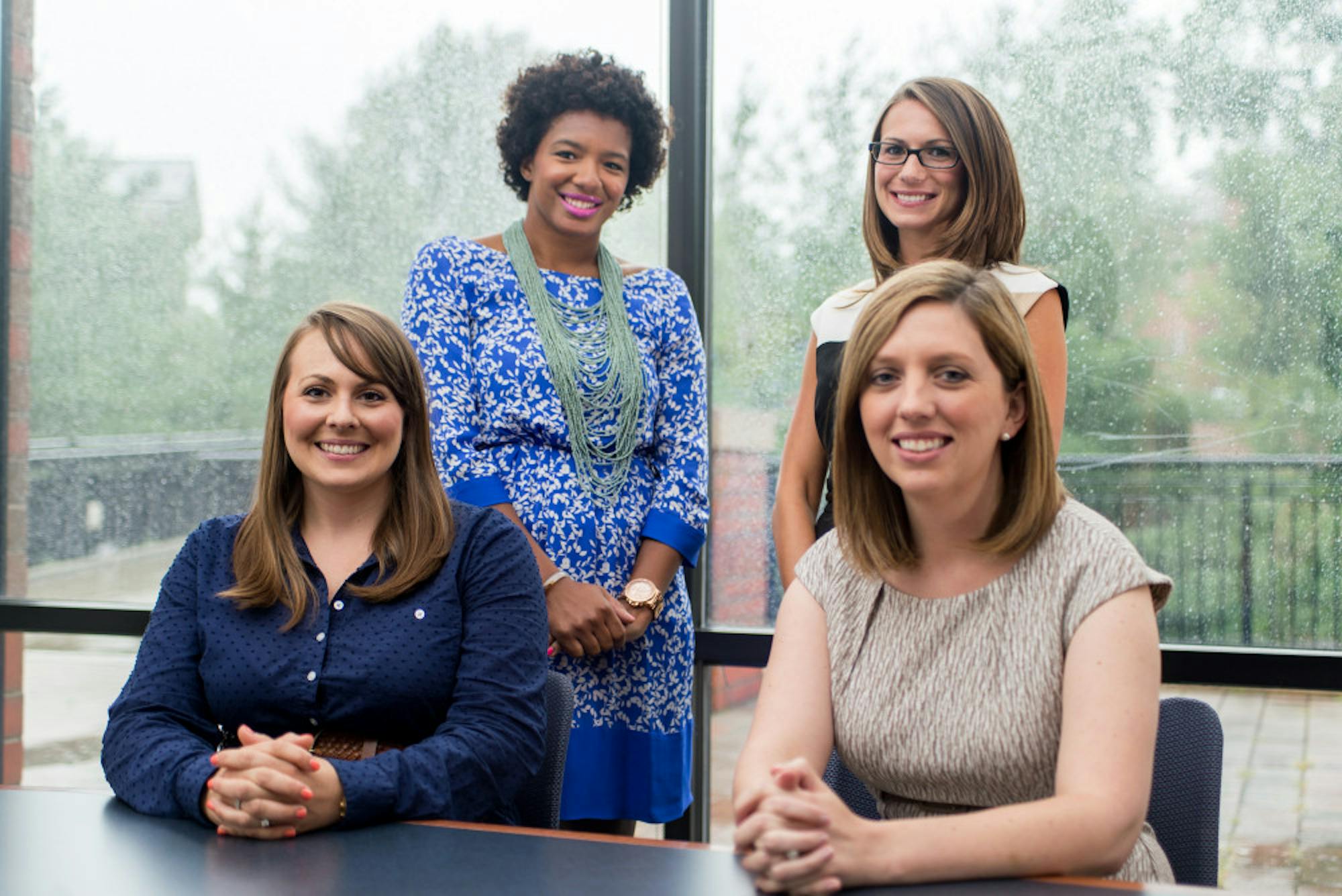This year, Tufts' advising will go professional, at least in part. Along with the traditional system of professors serving as pre-major advisors and academic deans, Tufts has hired four new College Transition Advisors (CTAs). This move follows a recent national trend of colleges entrusting advising to professional advisors rather than professors, as detailed in an April 11 New York Times article.
The CTAs will fill in the gaps between the resources available from pre-major advisors and academic deans for students. Available to all first- and second-year students, the CTAs each specialize in specific academic areas and will act as liaisons between students and the administration, particularly on matters that puzzle pre-major advisors but do not require the attention of a dean.
The four CTAs will be Mary Taylor, whose specialties are engineering and computer science, Joie Cummings whose expertise is in social sciences, Michelle Thomas specializing in natural science and mathematics and Danielle Vizena who will focus on humanities and the arts. Though it may be helpful for students to meet with a CTA who specifically shares their academic interests, the CTAs emphasized that any student is welcome to meet with any CTA for general questions. They can also address non-academic questions, and are familiar with many different aspects of campus life.
Dean of Academic Advising and Undergraduate Studies Carmen Lowe told the Daily in an email that the CTAs will be able to deal with academic policy questions that the existing administrative structure is not equipped to solve, as well as help students navigate the academic bureaucracy. She also added that the four CTAs will allow students more flexibility when it comes to seeking out administrative resources, as it is often difficult to schedule appointments with deans and pre-major advisors.
"It may seem minor, but not knowing which form to submit where by when can delay a student's progress toward [his or her] academic goals," Lowe said. "This is where the CTAs come in: they will be working at various locations around campus — in the residence halls and in the campus center, as well as in Dowling Hall — and they will have appointment hours or drop-in hours after 5 p.m."
The CTAs themselves are excited to join the Tufts community. Mary Taylor said that she looks forward to engaging with Tufts' student body.
"I am incredibly impressed by the passion and intellectual curiosity of those I have met so far," Taylor said. "I'm really looking forward to getting to know more Tufts students."
Tufts students, however, seem slightly confused as to why the CTAs have been hired in the first place. Though many agree that the CTAs will likely provide a valuable resource to first and second-year students, others still doubt that they will actually be useful. Ted Olney-Bell, an incoming freshman, thinks that the student body will just have to wait and see.
"From what little I know about the advisors and deans that Tufts already has, [the CTAs] seem a little redundant, but they could also be really helpful, specialized people," he said.
Olney-Bell had heard a bit about the advising system at Tufts, but didn't know much about how it actually worked.
"It's possible that I would go see them," he said. "I don't know yet."
Many upperclassmen, however, are not even aware of this change. When asked about the topic, Holly Janssen, a rising junior, was unaware as to who the CTAs were or what their duties would be, and was still confused after reading about them online.
"I'm not super sure how different [the CTAs] are from regular deans and advisors, and it sounds like Tufts isn't really specifying yet what their duties will be," Janssen said. "I think it would be [helpful] if they made it really clear what their specific duties are."
According to Lowe, the CTAs will be organizing some formal programming for first- and second-year students, as well as taking part in the extended first-year orientation. This summer,they have also called every incoming freshman student to help personalize the first-year experience.
Lowe added that the CTAs' duties, despite acting as a bridge between academic advisors and academic deans, will not overlap with those of existing deans and pre-major advisors quite as much as students seem to believe.
"The CTAs are not taking away from the important work of the pre-major advisor," she said. "They are supplementing the role with more up-to-date information about paperwork and policies that even the best advisor has a hard time keeping up with."
Additionally, Lowe hopes that the CTAs will give academic deans more time to focus on more pressing matters such as students facing academic probation or medical leave.
In an email to the Daily, the CTAs explained that their work is supplemental to the existing advising system.
"We are all a team, working together to support students," the CTAs said. "We see ourselves as additional resources for students, which is especially important for [them] as they make the transition from high school to college and make big decisions about their future."
Above all, the CTAs said they are here to simplify the first two years of life at Tufts. Questions about potential majors, study abroad options or non-academic life are all fair game for the CTAs, who are available by appointment in Dowling Hall.
New College Transition Advisors add professional outlook to Tufts' advising

Tufts recently hired four new College Transition Advisors to provide professional advising to first- and second-year students. The advisors, pictured left to right, are Mary Taylor, Michelle Thomas, Danielle Vizena and Joie Cummings.





